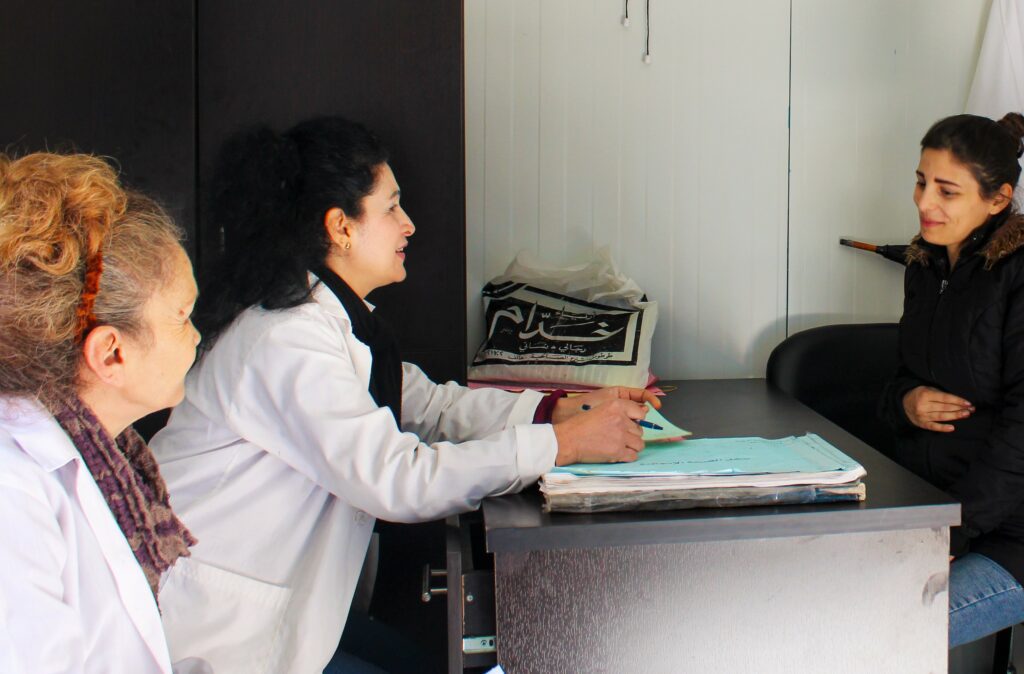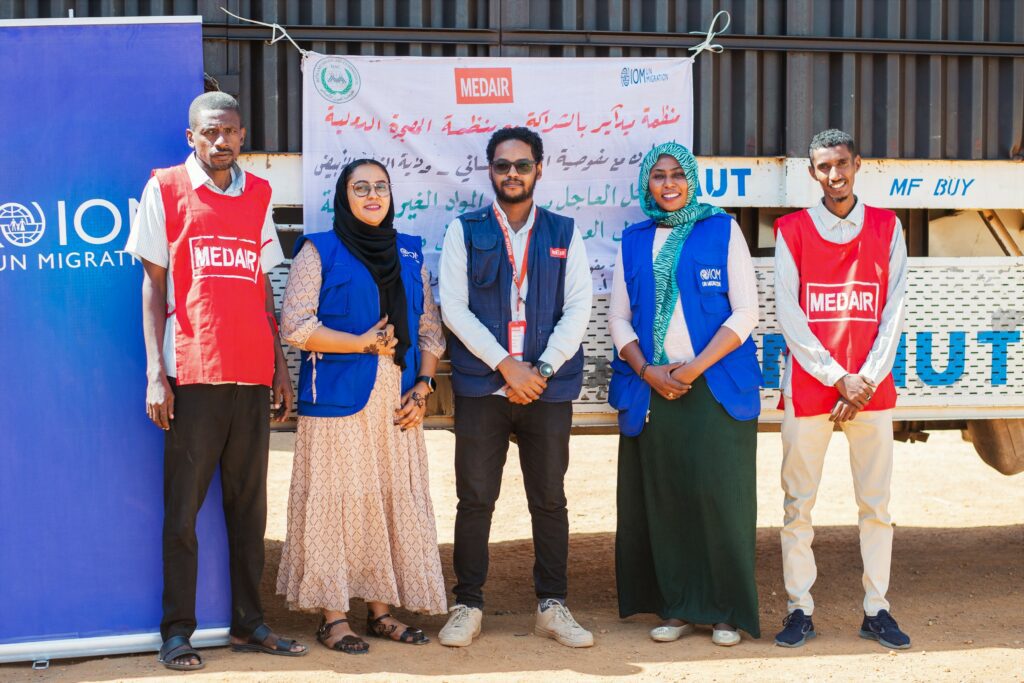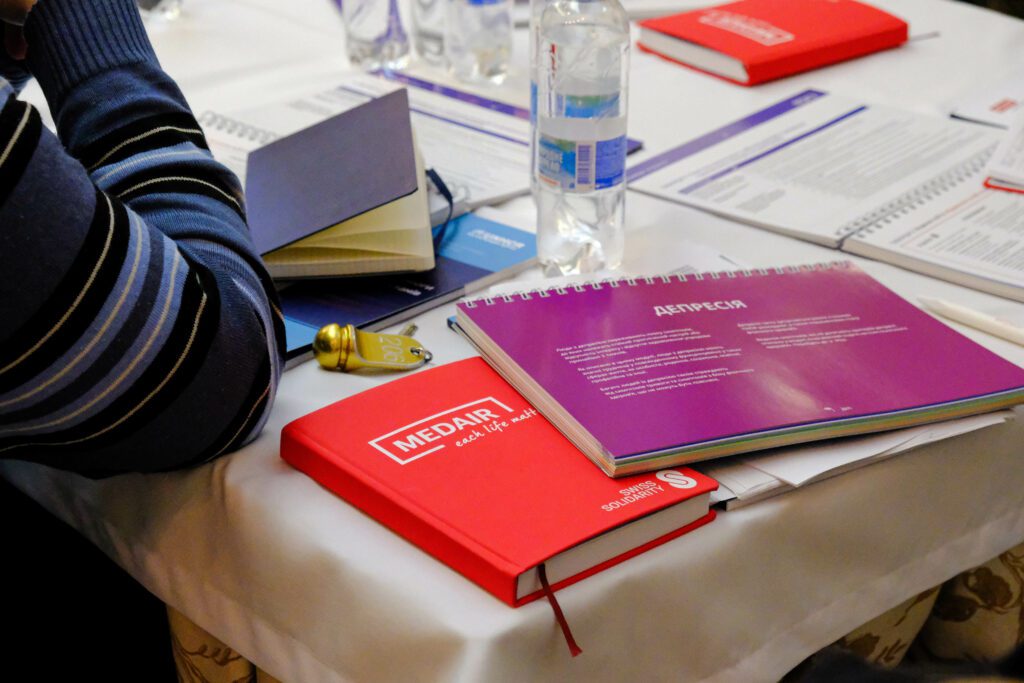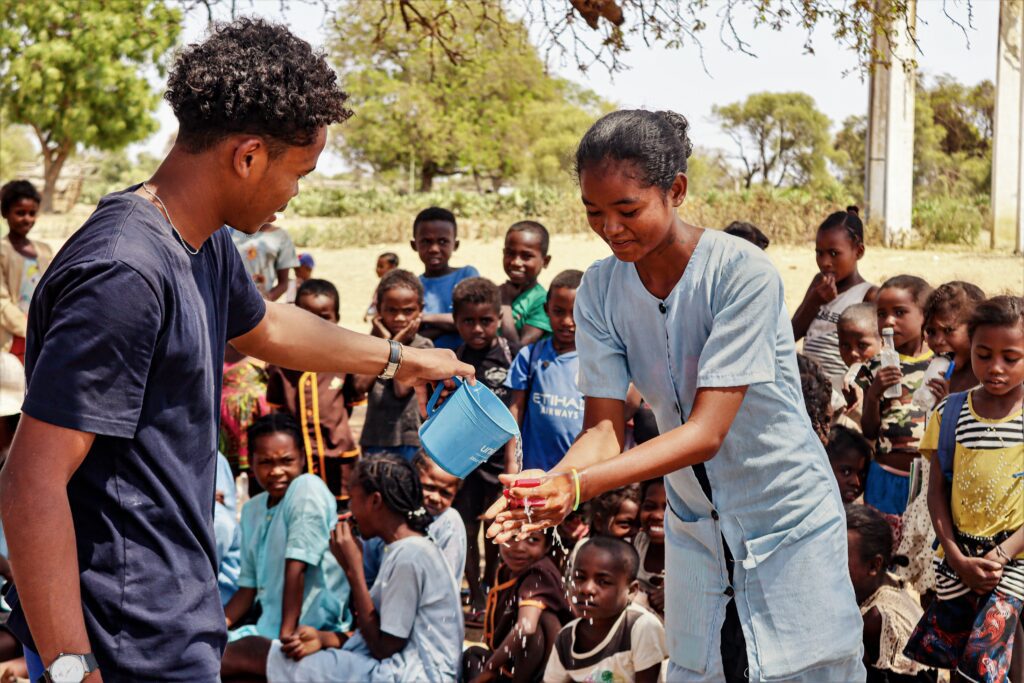“I didn’t think much of the sessions when I first started coming. But just being part of the session alongside the other participants, I already felt a sense of acceptance and belonging,” says Hassan.
The current conditions in Lebanon are deeply affecting the mental health of many individuals, like adults, adolescents, and particularly for people with specific needs and their caregivers. The civil unrest, economic crisis, and COVID-19 pandemic have left many citizens residing in Lebanon, facing increasingly difficult circumstances.
People in Lebanon have been suffering a lot of stress, trauma, and depression because of the worsening crisis. This has been very damaging to their mental health. There is a lot of financial difficulty, and it is becoming harder to get basic things like food, water, and medical supplies.
People with specific needs and their caregivers are particularly affected by the deteriorating conditions in Lebanon. Many of the caregivers are struggling to meet their own basic needs, while also trying to provide for their dependents. This can be overwhelming, leading to feelings of exhaustion, guilt, and helplessness. In addition, caregivers may also be experiencing a lack of access to essential services and resources, such as health care, that they need to care for their dependents. The people with specific needs they are caring for also feel the situation’s effects. Many are not able to access the medical care or specialized services they need, leading to increased anxiety and stress. In addition, the lack of resources and services has made it difficult for them to maintain their daily routines and activities, which can further exacerbate their mental health issues.
In mid-April, I had the privilege of participating in a mental health support group session hosted by Medair’s mental health team. The session was attended by a diverse group of ten individuals, spanning a range of nationalities including Lebanese and Syrian, aged between 25 and 40. The session was held in coordination with the Development Indicators Association (DIA). DIA is an organization in Chtoura, the Bekaa Valley, Lebanon, dedicated to the inclusion of people with specific needs led by Dr. Fayez, a Lebanese community member with specific needs. Dr. Fayez and I spoke about the importance of inclusion and how the aim of DIA is to create a society in which everyone is welcomed and respected regardless of their individual abilities. The organization strives to create an inclusive environment that celebrates diversity and encourages the acceptance of all.
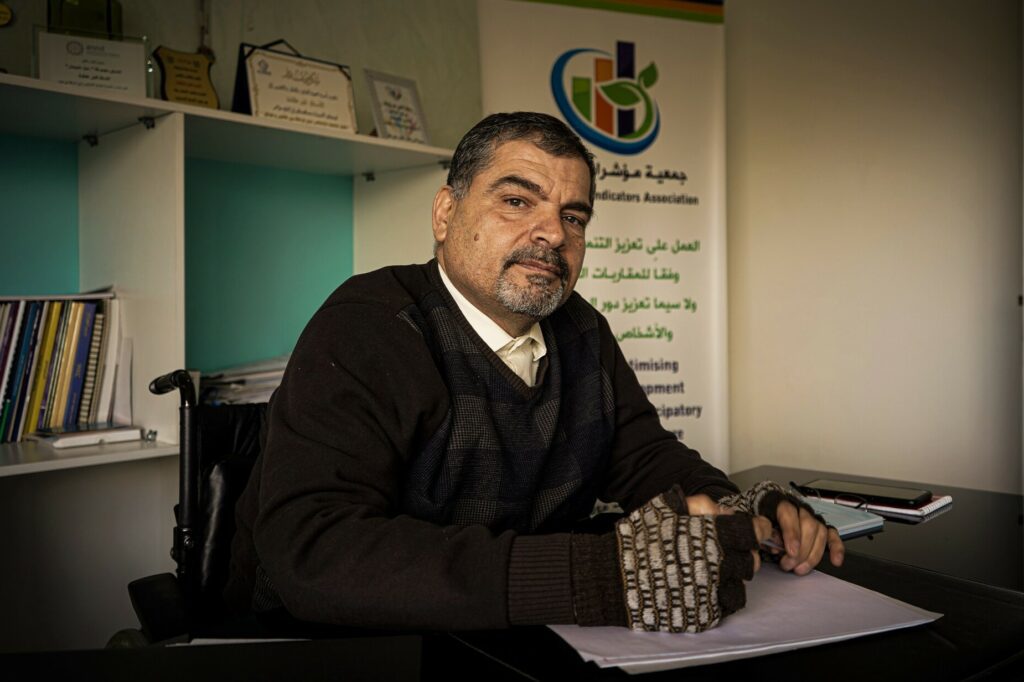
Dr. Fayez, 42 years old, a Lebanese community member and Person with Specific Needs (PwSN) sits in his office at the Development Indicators Association (DIA) located in Chtoura, Bekaa Valley on the 5th of May 2023. ©Medair/Abdul Dennaoui
“Lebanon is still a little bit old-fashioned when it comes to acceptance and inclusion. We still talk about inclusion, as if it’s something unachievable. Inclusion is the right of all people. We were all created equal in the eyes of God. No one should be excluded or treated differently because of a disability or otherwise. Everyone deserves the same opportunities and rights, regardless of their ability or disability. Understanding and accepting diversity is essential in creating a world that is inclusive and respectful of all people. Our mission at DIA is to achieve this by taking the necessary steps and setting up the framework for the future. It is a known fact, that the inclusion of people with disabilities is a fundamental human right.”
After wrapping up a meaningful brief conversation with Dr. Fayez, I proceeded to the room where the session was to take place. The room was filled with anticipation as the mental health session was about to begin. The participants, all who had specific needs, gathered around the table, eager to learn more about the importance of thoughts and how to cope with negative thoughts. Fatima and Rayan, Medair’s facilitators emphasized the importance of self-care and the power behind positive thinking. As the session advanced, I saw how the participants were actively engaged in the session, sharing their own experiences, and offering insight into their own coping mechanisms.
I was particularly struck by the importance the participants placed on feeling included and the positive impact of the effectiveness of the session. Many spoke about the positive outcomes of the sessions and how learning coping mechanisms was crucial in dealing with day-to-day struggles. It was also evident that the participants derived great benefits from being a part of a group with similar interests.
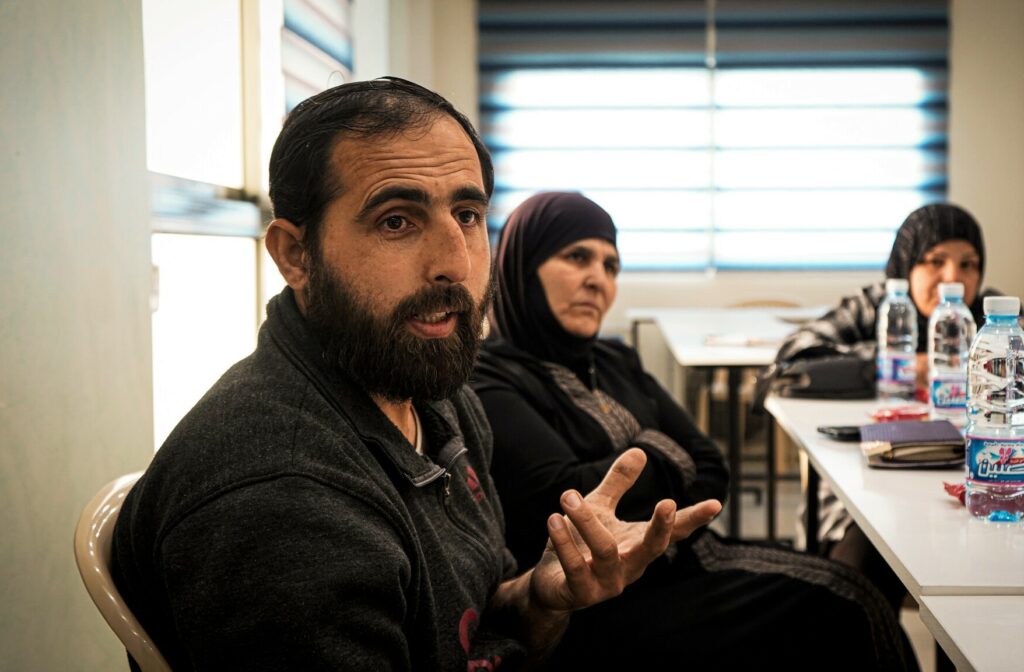
Hassan, 36 years old, a Syrian community member and A Person with Specific Needs during the awareness session held at the Development Indicators Association (DIA) located in Chtoura, Bekaa Valley on the 5th of May 2023. ©Medair/Abdul Dennaoui
“I didn’t think much of the sessions when I first started coming. But just being part of the session alongside the other participants, I already felt a sense of acceptance and belonging. It got better with time. I found myself finding I was looking for in these sessions all along while facing struggles in my personal life. I’ve realized, however, to struggle whilst equipped with tools is certainly different than struggling without them” shares Hassan, 36 years old, a Syrian community member, and a Person with Specific Needs attending the support group session with his mother Leila. Hassan said that as the weekly sessions continued, he became more interested in what was taught and this encouraged him to use the techniques he was learning in his everyday life. Leila, his mother, confirms “It was after the third session that I noticed a transformation in my son and a newfound sense of calmness. It was as if he had changed overnight. I am very proud to witness him striving to become a better version of himself, and for the first time he is starting to feel part of his community,” says Leila, Hassan’s mother, and caregiver, who attests to the changes in Hassan’s character and his improved ability to confront difficulties. She also mentioned that engaging in the sessions with her son has helped foster a stronger relationship between them as mother and son.
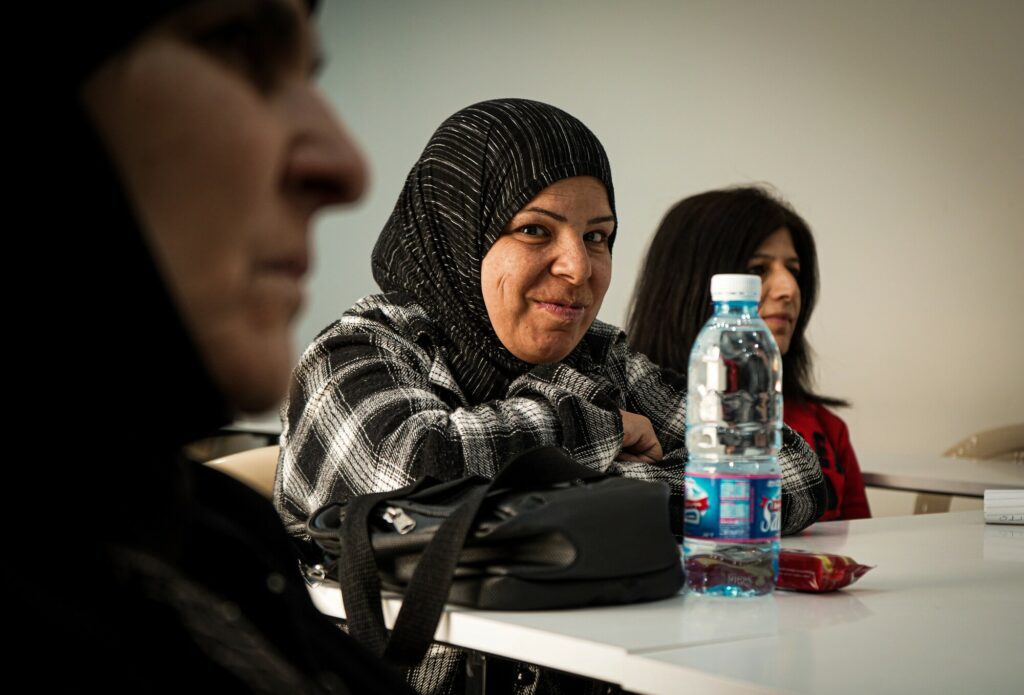
Wourroud, 40 years old, a Lebanese community member and a Person with Specific Needs speaks during the awareness session at the Development Indicators Association (DIA) located in Chtoura, Bekaa Valley on the 5th of May 2023. ©Medair/Abdul Dennaoui
Wourroud, 40 years old, a Lebanese community member and a Person with Specific Needs also spoke about the impact of the sessions on her everyday life, “I am grateful to have the opportunity to join the sessions, and I’ve got to say that it has been incredibly beneficial for me. As someone with specific needs, I wanted to ensure that I was getting the most out of the sessions and that I was able to understand how to properly cope with difficult situations. Day by day, life is getting more and more difficult. There are many stressors for our minds to process. Being consumed by stress and falling into depression is quite easy if you are not equipped with the right tools. The sessions have provided me with the knowledge and skills to avoid this from happening and I will happily continue to participate.”
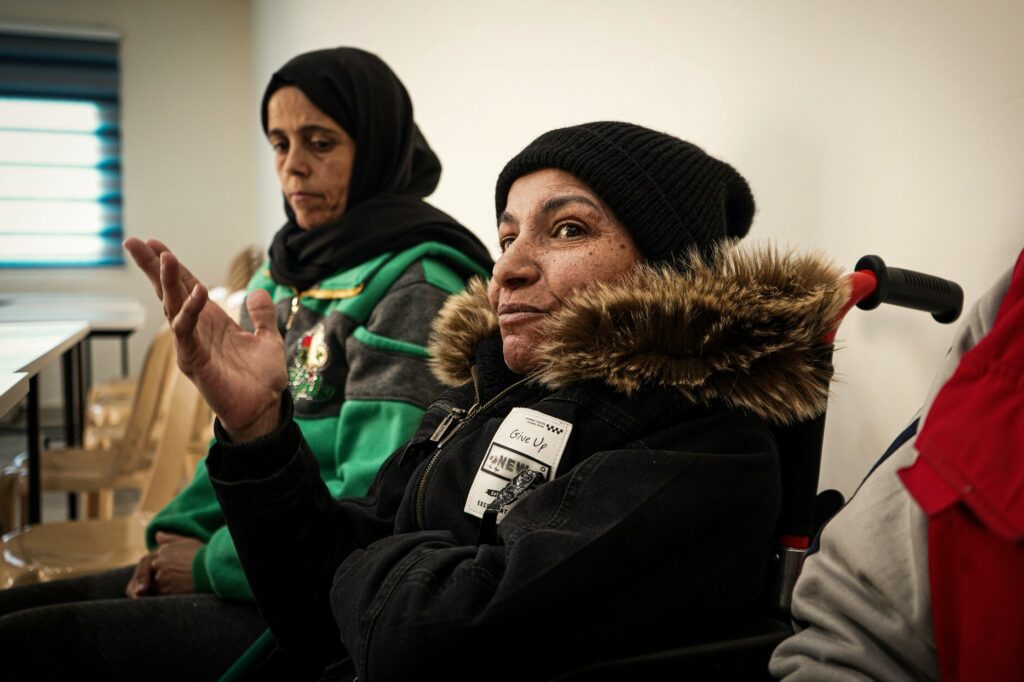
Najah, 21 years old, Palestinian sits next to Ola, a 29-year-old, Lebanese, both Persons with Specific Needs (PwSN) while they listen intently during the awareness session at the Development Indicators Association (DIA) located in Chtoura, Bekaa Valley on the 5th of May 2023. ©Medair/Abdul Dennaoui
For other participants like Najah, a 21-year-old, Palestinian with specific needs, the sessions were an opportunity for her to break out of her shell and make new friends. “These sessions have had a profoundly positive impact on me. Being among other people who experience the same challenges has changed my life. I used to be quite isolated and uninterested in making friends or engaging with others. My home was not a place that was welcoming to visitors. When I look at myself now, I am amazed at how much I have changed in such a short period of time. The sessions have been tailored to our needs and the exercises are highly relevant to our struggles.”
At the end of the session, participants expressed their appreciation for the valuable information they had gained. They reported that they had seen improvement in their mental health and well-being since attending the sessions, as they felt a sense of inclusion and belonging, and were looking forward to the next.
Medair mental health and psycho-social support services in Lebanon are provided with the support of the Swiss Agency for Development and Cooperation (SDC) of the Federal Department of Foreign Affairs (FDFA).
This content was produced with resources gathered by Medair field and headquarters staff. The views expressed herein are those solely of Medair and should not be taken, in any way, to reflect the official opinion of any other organization.


